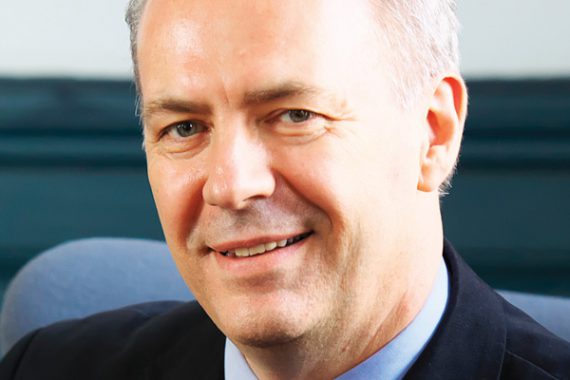New Scottish contract gets green light as 72% of GPs back its rollout

GPs in Scotland have supported the biggest reform to the GP contract since 2004, in a landmark vote that saw nearly three-quarters back it.
The ballot saw the new Scottish GP contract backed by 71.5% of participating GPs, while 28.5% were opposed. However, only 39% of eligible GPs voted.
The ambitious contract, which would set Scottish GPs on a different path to the rest of the UK, would see direct reimbursement of practice and staff expenses, a move away from GPs owning premises and a focus on the GP as an expert medical generalist at the head of a multidisciplinary team.
It also includes the transfer of responsibility of some services, including vaccination to health boards without loss of funding.
BMA figures suggest almost two-thirds of practices would see overall funding increase under a new funding formula and the proposals also include a minimum earnings expectation to ensure no GP partner earns less than £80,430.
A second round of negotiations, focusing on direct reimbursement and GP pay will begin in 2020 and will be subject to a second poll.
But some GPs, especially those in rural areas, have been outspoken about their opposition to the contract. The Rural GP Association of Scotland has said its members were concerned that rural issues were not being addressed and fears have also been raised that the contract moves general practice towards being a salaried service.
Yet others have said the contract offers a real opportunity for general practice and at a special LMC meeting in Glasgow in December the majority of representatives agreed that the proposals addressed the key issues of sustainable funding, reduced risk, attractiveness of the profession and reduced workload.
An early Pulse poll suggested the results could be tight with respondents divided down the middle, but this vote has a clear majority for the GPC to move ahead with the plans.
Dr Alan McDevitt, Chair of the BMA’s Scottish GP Committee said: ’I am delighted that the proposed contract that we have worked with the Scottish Government to create will now be implemented. I truly believe that this contract offers stability and security of funding for practices in Scotland and will help to reduce the pressures of GP workload and improve GP recruitment and retention.’
Dr Carey Lunan, chair of RCGP Scotland, said: ’The launch of the new contract and the polling of the profession has not been without its challenges and many GPs, particularly in remote and rural and in deprived urban practices, have raised concerns about the impact of the proposed changes and how this will affect delivery of patient care in their communities. However, many have also recognised the opportunities that this contract potentially offers to sustain and rebuild the profession that is at crisis point in many areas across the country.’
Dr Iain Kennedy, medical secretary of Highland LMC, said his members would be disappointed with the results of the vote but they accepted the outcome.
‘In terms of moving forward we will be inviting Dr Alan McDevitt to our next meeting of Highland LMC because we need to move on and see what this means for our practices. There will be a lot of anxiety and uncertainty.’
He added that he hoped the working group set up to deal with rural issues would be a good thing.
‘We do need open and transparent conversations to continue to enable rural practices to flourish and we have particular concerns about recruitment and retention and sustainability payments.’
What happens next
Work will now take place to allow the first phase of the new contract to be implemented from April 2018, with a second phase of changes only taking place after a second poll of the profession in 2021.
Phase 1 of the contract will introduce a new funding formula, increase investment by £23 million and start collection of data to inform Phase 2
During phase 1 there is a guarantee to protect practice income and expenses.
In 2019/20 the GP minimum earnings expectation will be introduced.
Phase 2 in 2020/21 will guarantee income range and direct reimbursement of expenses
Between 2018-2021 there will be service redesign with non-expert medical generalist workload needs redistributed to the wider primary care multi-disciplinary team. Several services will be developed to support GPs in their practices including:
- vaccinations services;
- pharmacotherapy services;
- community treatment and care services;
- urgent care services; and
- additional professional clinical and non clinical services including acute musculoskeletal physiotherapy services, community mental health services and community link worker services.
Each of the 31 HSCPs in Scotland will develop a ’Primary Care Improvement Plan’, which will outline how these services will be introduced before the end of the transition period in 2021.
Pulse July survey
Take our July 2025 survey to potentially win £1.000 worth of tokens












